illustration from my book Finding the Sweet Spot
About half the people on Bowen Island, where I live, commute daily to Vancouver via a heavily taxpayer-subsidized car ferry. The reason they do this is, basically, that whatever they have to sell can’t be profitably sold here, because it doesn’t directly meet any of our needs. Much of what they produce does make it back here, in the form of gasoline, imported products, processed foods, bank, insurance, accounting and legal ‘products’, construction materials, pharmaceuticals and household goods. And interest and rents paid to absentee mortgagors and landlords. Little of what we really need — food, clothing, building materials, drugs, energy, household products, health services etc. — is made here in significant quantities. We ‘import’ just about everything.
The other half of the population is either retired, unemployed, or (from what I have ascertained) constantly struggling to make a living. We have many artists, craftspeople and artisans, musicians, and service people of all kinds (hairdressers, therapists, construction workers, seamstresses, retailers, caterers, water taxis, maintenance people, restaurants etc.). The price of land and property here is insane, thanks to our proximity to Vancouver, so a lot of people work from their homes instead of offices. The citizens, struggling with the high cost of living, mostly find the prices charged by the locals “expensive”, while these prices are often not enough to cover the local service-provider’s rent. Turnover and business failure rates are therefore high, as is the number of people who give up and move ‘back’ to the mainland.
So we suffer from a double predicament: Our local economy is utterly unsustainable; and our residents (both commuters and non-) have so little left after paying for essentials — money that all flows out of the island — that they can’t afford to pay the locals who are trying to make a living here, and hence make our local economy a little more robust.
Jay Tompt, writer with Transition Town Totnes (where the Transition movement began), recently explained that even Totnes could not feed itself in a crisis, because the food, transportation and other systems are completely interdependent, so “you’re only as resilient as your neighbour”. And everyone is your neighbour in this globalized world.
And a local food expert in California says the entire “eat local” movement is naive and insufficient: “When the dust settles, however, locavores are likely to be disappointed and frustrated. The modern food system will bear their imprint to be sure: any ‘serious’ sit-down restaurant will source as much locally as possible, schools will have salad bars, and big box stores and groceries will glowingly highlight foods on sale grown within the state. Indeed, all of these things are happening already. But farm soil will become even more scorched earth, standard coffin sizes will be wider around the waist, and the eating habits of the majority of Americans will be barely changed.” [this is an outstanding article worth a read — thanks to Raffi Aftandelian for the link]
So when I went to hear Charles Eisenstein speak this month (more on that below) about the New Economy and community currencies, I was looking for answers that might be applied to deal with this ‘problem of dependency’, this ‘leakage’ of money out of our island to centralized corporations and institutions. I wanted to believe that, instead of encouraging the local artisans and service providers to form cooperatives to sell to mainlanders what Bowen Islanders couldn’t afford (the “if you can’t beat ’em join ’em” approach), there was some way to actually create viable ‘right livelihoods’ right here, that would increase our local self-sufficiency, resilience and sustainability, and wouldn’t be quickly eroded by this leakage of money. In the New Economy, Eisenstein said, everyone will be able to offer their gift to their community, and between us we will ensure that everyone gets what they need, without needing to monetize or account for it. What would it take for us on Bowen to give up our servitude to money and the industrial growth economy, and our mainland-dependent jobs, and create a sustainable local economy in which no one needed to struggle or work insane hours or do work they despised?
Alas, the only answer I came away with, and it will not be forthcoming for a few decades, is the final collapse of the industrial growth economy, when we will have no choice but to embrace the New Economy and discover, to our wonderment, that its subsistence lifestyle is happier, healthier and better for us and the world in every way. Only when the car ferry becomes prohibitively expensive due to fuel cost increases, and then rationed, and then discontinued entirely, will we react by either leaving the island or finding a viable livelihood here. Only when cheap imported clothes become more expensive than what we can make ourselves, and then unavailable at any price, will we relearn the essential (and enjoyable) skills of making our own. Only when the 3000-mile-meal becomes a $300 meal instead of a $30 meal, and then shelves empty of the California produce on which we now depend, will we start to relearn how to grow and harvest our own food, and relearn what to do with it.
That doesn’t mean we can do nothing now, and some of us, who are both aware of what’s happening and what’s coming and who have the luxury of time to act on our knowledge (mostly these are healthy non-commuters without young families) are starting to explore the many New Economy practices and experiments that are being tried in progressive communities in affluent nations everywhere. But it’s hard to be patient, to see this as (at least from the perspective of one person’s life) a marathon, not a sprint. It’s hard not to hope that the collapse happens sooner and faster and more persistently (but not so fast as to be overwhelming) so that the point at which we all must change comes more quickly, before things get even worse (and as we try to perpetuate the industrial growth economy with Tar Sands and fracking and endless war and geoengineering, they will get worse).
It’s hard to let go of the terrible knowledge of how the world works and what is most likely to come, and that we can’t ‘fix’ it, we just have to go with it, adapt to it, each moment and each day at a time. It’s hard when it’s gotten very dark and you’re lost in the forest and it’s starting to rain, not to get fearful or angry or sad, but instead to laugh and sing and play in the rain and know that life is astonishing and somehow you’ll find your way forward, safely, without suffering, to where you’re meant to be. It’s good to have you all, dear readers, here in the forest, laughing and singing and playing with me. It’s hopeless, but we’ll be fine.
PREPARING FOR CIVILIZATION’S COLLAPSE
cartoon by the wonderful michael leunig
Straddling the Old Economy and the New: Charles Eisenstein, author of Sacred Economics, was recently in Vancouver and spoke powerfully for 80 minutes about what the New Economy represents and how we can encourage it as a means of preparing ourselves for the Old Economy’s collapse. He made a similar speech in Vancouver a year ago, talking about how we’ll need to straddle the two economies for decades as the Long Emergency unfolds. Highlights of the more recent speech (I’ll link to it if/when it comes online):
- He covered many of the issues in this excellent short (12 minute) film about his book in more detail.
- For those who want to hear a full (over one hour) Eisenstein speech the ones he gave in Portland and London are very good.
- One of his essential messages is about how money enslaves us physically and intellectually even though it is nothing more than a set of agreements (based on underlying stories) about what has value, and “all” we have to do to bring about a New Economy is the “impossible” task of changing those agreements and stories to ones that are aligned with what we really value.
- He spoke poignantly about his activist friend who spent much of the last year looking after his 95-year-old mother-in-law, and how under our old-style economic thinking even progressives would see this as a “waste of time”, a diversion from his more “important” activist work. In the New Economy, he said, that work would be valued and supported, and the fact it isn’t tells us a lot about our culture and our world.
- The New Economy, he said, will encourage and enable us to stop ‘working for a living’ to make ends meet, and instead focus on identifying what our unique gift to the world is, and how we can offer it, without having to worry about whether anyone will pay us for that. It will be a Gift Economy based on generosity and trust that when we each offer what we can, and see our lives as lives of service to all-life-on-Earth, not lives of working harder and harder to stave off scarcity, we will discover that we don’t need most of what we buy, and we don’t need to work that hard or long to live very comfortable, meaningful lives. “A gift is different from a financial transaction. If I buy something from you, I give you the money and you give me the thing, and we have no more relationship after that. I don’t owe you anything, you don’t owe me anything. The transaction is finished. But if you give me something, that’s different because now I kind of feel like I owe you one. It could be a feeling of obligation, or you could say it’s a feeling of gratitude. What’s gratitude? Gratitude is the recognition that you’ve received, and the desire to give in turn. And that’s why we are driven to give. Because everything we’ve received is a gift. Our life is a gift. Having air to breathe – we didn’t earn that. We didn’t earn being born. We didn’t earn having food. We didn’t earn seeds being able to grow. Everything that we have is a gift.”
- He explained that our ‘growth’ economy, based as it is on the need for ever more debt to offset the printing of ever-more money, is unsustainable and ruinous (scroll down from this link to see the article). “The problem that we are seemingly unable to countenance is the end of growth. Today’s system is predicated on the progressive conversion of nature into products, people into consumers, cultures into markets and time into money. We could perhaps extend that growth for a few more years by fracking, deep-sea oil drilling, deforestation, land grabs from indigenous people and so on, but only at a higher and higher cost to future generations. Sooner or later – hopefully sooner – we will have to transition towards a steady-state or degrowth economy.”
- He often pauses to ask “What if we…?” and “Why not?” questions. This thinking forces us from our worldview that this economic system is the only one that can work in the 21st century. While I’m still not convinced “we can get there from here”, his ability to articulate what’s going on and the possibilities for “impossible” change is the best out there right now.
Experiments in the New Economy: Gar Alperovitz talks (also for over an hour) about how the new economy is creeping in, as social networks allow us to discover and work with others who understand that our current economy is unsustainable and will soon collapse, and try interesting experiments in what he calls “democratized wealth” economics. Teaser: “The pain levels are forcing people to do new things because they have to. In a crisis that isn’t what happens; you get explosions. But what we’re seeing, and this is the part that’a very interesting to me, what we’re seeing is an explosion of activity, both political, some social, but above all economic in a way I think could matter.” Thanks to Jon Husband for the link, and the one that follows.
Manuel Castells on New Economy Cultures: Sociologist Manuel Castells talks about how the failure of our industrial growth economy to provide for most citizens, combined with distrust of the political system to reform it, is driving cultural change that is enabling the emergence of the New Economy. Excerpt:
When I mention this alternative economic culture, it’s a combination of two things. A number of people have been doing this for quite a while already because they don’t agree with the meaninglessness of their lives. Now there is something else – it’s the legion of consumers who cannot consume – they don’t have the money, they don’t have the credit, they don’t have anything – [so] they try at least to make sense of their lives doing something different. So, it’s because of needs and because of values – the two things together – that’s why it’s expanding.
Places Worth Caring About: James Kunstler argues that the blight of most modern North American cities and the “public realm” spaces within them results from the negligence of architects, designers and developers to define spaces that reflect the nature, needs and interests of the people they are allegedly building for. Thanks to Don Marshall for the link. Excerpts:
We know what’s going on in these [modern suburban] houses, you know. We know that little Skippy is loading his Uzi down here, getting ready for homeroom. We know that his sister Heather is turning tricks up here to support her drug habit. Because these places, these habitats, are inducing immense amounts of anxiety and depression in children, and they don’t have a lot of experience with medication. So they take the first one that comes along, often. These are not good enough for Americans…
We’ve got a lot of work to do… No amount or combination of alternative fuels is going to allow us to continue running what we’re running, the way we’re running it. We’re going to have to do everything very differently. And America’s not prepared. We are sleepwalking into the future. We’re not ready for what’s coming at us. So I urge you all to do what you can. Life in the mid-21st century is going to be about living locally. Be prepared to be good neighbors. Be prepared to find vocations that make you useful to your neighbors and to your fellow citizens. One final thing — please, stop referring to yourselves as “consumers.” Consumers are different than citizens. Consumers do not have obligations, responsibilities and duties to their fellow human beings. And as long as you’re using that word ‘consumer’ in the public discussion, you will be degrading the quality of the discussion.
The Myth of Disaster Looting: A new investigative report shows that, when disasters hit, people rally together and crime rates actually drop. This is something to keep in mind when we prepare for the Long Emergency, since it will be no different. No Mad Max, no armed roving gangs, just communities struggling, as they do now in most of the world, to meet the needs of the moment, together. Thanks to Phil Jones for the link, and the one that follows.
The Arrival of Peak Fertilizer: We’ve been told that our industrial agriculture system is heavily dependent on oil; a new Mother Jones article explains how, reveals how perilously small the supply of both phosphates and potassium (two of the four key components of modern fertilizers) is, and explains how ecologically devastating the production of synthetic nitrogen (ammonium, the third key component) is. It omits describing the equal noxiousness of oil-derived sulphur, the fourth component. Most of this artificial fertilizer ends up in runoff into lakes, groundwater and oceans, so this oil-dependent and scarcity-prone substance fouls both the air and the water.
LIVING SMARTER
cartoon by hugh mcleod at gapingvoid, and great advice to prospective entrepreneurs
The Only Thing Co-Working Needs to Be: Last year Bill Tozier wrote a brilliant, and very funny, rant about the misconceptions of people about “co-working”, as if it was about office space, or making money, or any of a dozen other misconceptions. It’s really about community. If you’re a small business owner, or aspire to be one, read Bill’s article. He makes one of the main points I try to make in my book: Don’t try to do this alone.
How to Help Small Business? Shut Up and Listen: Ernesto Sirolli has an excellent speech excoriating Westerners for our arrogant attempts to “teach” entrepreneurship in struggling nations, instead of listening and appreciating the local context and culture for enterprise, appreciating the passions of their prospective entrepreneurs, and understanding local needs. Thanks to Cheryl and to Pauline Le Bel for sending me this link almost simultaneously.
Death, and Life, with Dignity: I want to acknowledge the courage of ALS-sufferer Gloria Taylor, who got Canada’s ban on doctor-assisted suicide ruled as unconstitutional in June, defeating both the federal and provincial governments who opposed her case. She died last month, of complications of an infection, but the battle goes on, as the ruling has been appealed by the federal government. The right to die is destined to become one of the biggest issues of the coming decades, with the religious right resorting to fear-mongering about it inevitably leading to elder, and other, abuse. The Canadian federal government did make one intelligent decision this month, however, refusing to block the production of generic oxycodone, and in so doing putting the needs of chronic pain sufferers ahead of the concerns of addiction treatment professionals and law enforcement agencies.
What If We Trusted You?: My friend Jerry Michalski talks about institutional education versus unschooling in the context of trust, and shows how distrust creates dysfunction and how trust (e.g. Wikipedia’s open editing) leads to a renewed passion for learning. And then he posits that this choice, between institutionalized distrust and liberating trust, has been made, and made poorly, in every facet of civilized life, not just education, and that we can make a different choice.
Velomobiles: The Future of the Car?: Working prototypes of a recumbent tricycle with an aerodynamic shell and electric motor suggest they can go as fast as today’s electric cars with 1/80th the power use.
POLITICS & ECONOMICS AS USUAL
cartoon by dan piraro
Grand Juries: The American Inquisition System: Few people know about how the “grand jury” system in the US works, and that’s the way they like it. This is one of the reasons I get uncomfortable every time I visit the US — anyone, without cause, can be simply “disappeared” in this system. If you’re a vocal supporter of any non-mainstream political group or idea in the US, be cautious, and be aware. This process removes every “human right” you thought you had, on the whim of any zealous prosecutor or law enforcement officer. Even the ABA’s FAQ damns the process. No other ‘democratic’ country allows this. Thanks to Morva Bowman for the link.
Naomi Klein’s Disaster Capitalism: An excellent documentary based on Klein’s book Shock Doctrine, explains how the Chicago/Friedman/Rumsfeld school has encouraged, advised and supported political, economic and military terrorism (“shock therapy”) around the world, notably in Allende’s Chile, Thatcher’s UK, Reagan’s pre-9/11 and Bush’s post 9/11 US, US-occupied Iraq, Yeltsin’s Russia, and disaster-stricken New Orleans, all designed to privatize everything under the control of a small elite and cow the citizens into meek obedience to extreme right-wing authoritarian political-military-industrial regimes. The 2008 market collapse and subsequent gutting of the public treasury to ‘bail out’ the private sector is just the latest volley in this ongoing and relentless corporatist war, and, Klein says, it will only stop when we make them stop. Thanks to Poor Richard for the link.
Frack Fight: An explanation of how ecologically devastating fracking is, and how Big Oil is pulling out all the stops to crush opposition to it anyway.
Canada’s Bizarre ‘Entitled’ Conservatives: It’s funny how Canada’s (few) conservative icons just keep disgracing themselves. I think we should create the Conrad award, after the neocon publisher Conrad Black who was imprisoned for fleecing his companies (and their shareholders) to pay for his and his wife’s spending excesses. This month’s Conrad awards go to Margaret Wente, Canada’s most execrable reporter, for serial plagiarism and hysterical denial in the face of overwhelming evidence (she’s still on the payroll of the now equally-execrable Globe & Mail, once a respectable newspaper), and to John Furlong, Olympic organizer, TEDx speaker, Order of Canada holder and idol of the hard-work-and-integrity crowd, for his self-aggrandizing autobiography’s failure to mention his years of alleged abuse of First Nations children (although many sworn affidavits have been filed by his alleged victims, he’s denied everything and hired an army of lawyers to sue the reporter who broke the story). Sad. And vying for possible Conrad awards next month are two more right-wingers, Toronto’s loony mayor Rob Ford and Alberta premier Alison Redford, who both seem to think conflict of interest doesn’t apply to them.
Canada’s Debt Levels Reaching Pre-Collapse Levels: Canadian citizens’ debts are now at the same level that US debts were at just prior to the housing market collapse. Still, they’re saying it can’t happen here.
The Secret Canadian Geoengineering Experiment You Weren’t Supposed to Know About: With federal government knowledge and approval, a wingnut group dumped 100 tons of iron suphate into the ocean near ecologically fragile Haida Gwaii, BC, in violation of several international ocean treaty and environmental laws, producing a plankton bloom that could be seen from space, in the hopes it would produce a temporary fish boom and that they could sell carbon offset credits for the project. It, uh, didn’t work.
Using Invasive Species as Biofuels: Now that the economics of ethanol have been shown definitively to be disastrous, defenders of growing stuff to burn in our cars are promoting invasive species that grow really tall really fast with minimal needs for cultivating as more ‘efficient’ biofuel sources. They call the latest weed a ‘miracle’. They said the same of the oil-fertilizer-based ‘green revolution’. Thanks to Tree for the link.
And Now the FHA Needs a Bailout: The US FHA, which stepped in to insure risky mortgages when Fannie Mae and Freddie Mac went under, now bankrolls over $1T in mortgages — and it’s underwater, even if house prices don’t fall further.
FUN AND INSPIRATION
cartoon from XKCD
Funny Pie Charts: This list of the world’s most hilarious pie charts is priceless; you may have to sign up for Quora to see them. Thanks to Seb Paquet for the link, and the one that follows.
How We Decide What We Think: Interesting hypothesis by Gene Bellinger on how we decide what we think and do. It notes that our worldview filters out data that is not consistent with that we (already believe), but doesn’t mention that there is evidence (from studying the neural processes in our brains) that our actions actually precede our decisions, i.e. the physical action we take in the moment often occurs before the cognitive process that supposedly produces the decision to take that action. That means that our actions determine our beliefs in another positive feedback loop, and our beliefs are often just rationalizations for what we have already decided (emotionally and/or instinctively) to do.
New Yorker Magazine Calls for Obama to Launch Huge Effort to Combat Climate Change: David Remnick’s lead editorial “No More Magical Thinking” calls on him to use the Presidential Address to start an effort to combat climate change comparable to Kennedy’s project to put a man on the moon. We’ll see.
The Keys to Well-Being: A new study of UK census data on the subject of people’s sense of well-being revealed that disabled people, visible minorities (non-whites), the unemployed (especially long-term unemployed), those in temp jobs, those working long hours, those working in the private sector, and those living in the cities and very impoverished areas are relatively unhappy, while the retired, local government workers, and those who work part-time by choice are the happiest. Thanks to David Hodgson for the link. Meanwhile, a new book, The Antidote (review coming soon), argues that “positive thinking” seminars and self-help books actually raise expectations and hence increase unhappiness when they fail to deliver, and a contrary strategy of imagining the worst and then realizing something better can actually help. Joyful pessimism, anyone?
How Indigenous People Sleep: Research on non-Western sleep habits reveals that indigenous peoples, including children, have no “regular” bedtime, are usually accustomed to sleeping with noises and/or movement going on around them, and often sleep in two 3-5 hour stretches with an hour or two of calm wakefulness between them. Thanks to Tree for the link.
Anne Lamott’s Secret Prayer: Help. Thanks. Wow. Anne Lamott’s three words that represent what she prays about. I’m an atheist and I’m not buying, but damn the woman can write.
THOUGHTS FOR THE MONTH
photo by Wilma Hurskainen (thanks to Dave Riddell for the link)
What is the #1 killer worldwide of girls age 15-19?: Answer: Complications of pregnancy and childbirth. Thanks to Liz McLellan for the link.
From Karen Maezen Miller (thanks to Beth Patterson for the link), on loving a teenager:
They love us in a different way. I said that when someone asked what it was like to have a teenager.
I feel like we’ve lost a daughter. My husband said that after a silent and inconsequential Sunday.
Just shut up. I said that to her after a ride in the car yesterday.
And yet, there is love, so much love between us and it has gone nowhere! I am standing on the high bluff over death valley, infinite openness in all directions, stunned dumb in the emptiness, but I know the space before me is pure love. Pure love. Life grows here, even when we can’t see it. Refreshed in a cool night, fed by invisible rivulets. A whisper of sea sails five hundred miles across five mountain ranges, and the whisper is this.
They love us in a different way. They love us in the space, the space that is nothing but love.
Love is not a feeling, not a thought, nothing given or got, not more or less. Not a precaution or warning, not a push or a prod. Not a reminder, not a teaching, not a performance. Love is not what I say and not what you hear. Not how was school how was the test what about homework what are you wearing wash your face eat your dinner pick up your shoes I don’t like her him that when if what did you do what did you say what about your terrible wonderful failure success happiness sadness what about me what about me what about me?
Love is the space between us. There is so much space.
What will you put into that space today, I ask myself before I hear the roar of my own echo: Just shut up.
From Zvika Krieger (thanks to Harold Jarche for the link), on the future of “employed” work:
I asked Elli Sharef [of the headhunter/employee assessment firm HireArt] if she had any insights on the broader employment picture, since she spends most of her day trying to match employers with employees. The most striking trend she sees is that having a strong, well-rounded resume is no longer good enough. Employers are increasingly looking for specific [pre-existing] skills sets that match their needs.
“They don’t want to train people on the job anymore,” she says, marking a shift away from the apprenticeship model that defined many sectors in the economy before the recession. “There are just too many people looking for work for companies to waste time on someone who can’t start, ready to go, on the first day.”
From Ann McMaster (thanks to Maristela for the link), on the difference between ‘detached’ and ‘unattached’:
When I’ve been attached to my dream [of co-creating a better world], I’ve been consumed by it, pouring so much energy into it that I eventually felt drained, hopeless, defeated when it didn’t look like it was going to happen. That’s when I let it go, detaching myself from what was once important. [But] detached means separated, and in this context, distant from my heart. While unattached means autonomous, self-governing – open to possibility. When I’m in right relationship with myself and my dreams – I have them, they don’t have me.

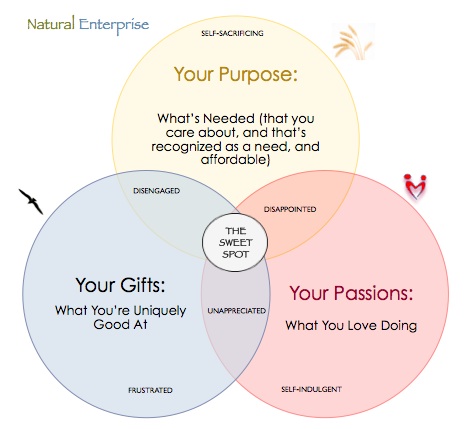
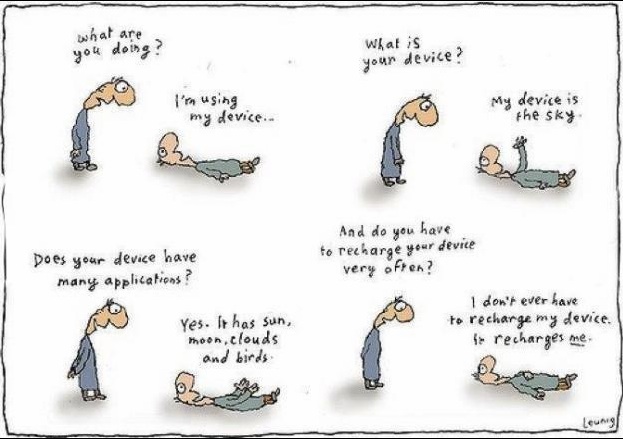
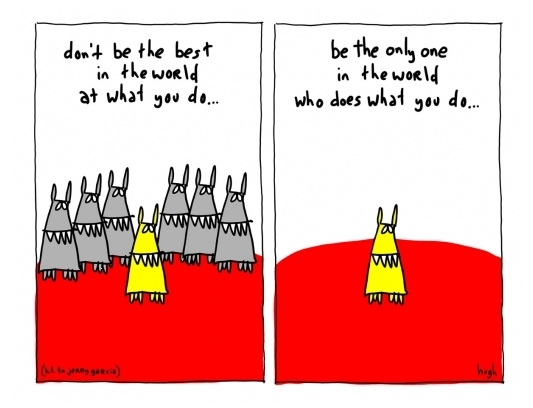
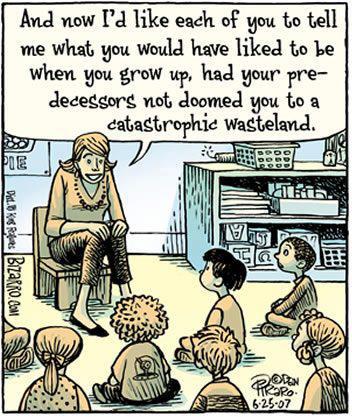
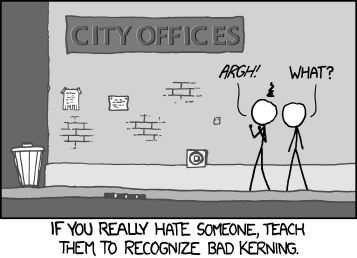
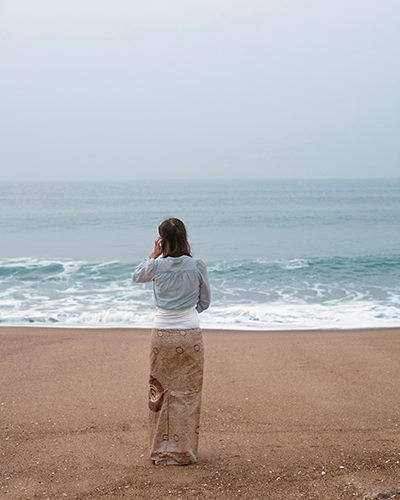




Pingback: Transition: Is the entire “eat local” movement naive and insufficient?… « UKIAH BLOG
Thanks for all of this!! Excellent compendium of thoughtful resources. I’ll be following up on all of this for a few days.
Thanks for this great list of links, Dave. I’ve missed them!
Or have I been under a rock. No need to answer…
One of your links is wrong…
please check:
Frack Fight: An explanation of how ecologically devastating fracking is, and how Big Oil is pulling out all the stops to crush opposition to it anyway.
the link takes you here:
http://www.nytimes.com/2012/12/02/business/in-an-fha-checkup-a-startling-number.html?nl=todaysheadlines&emc=edit_th_20121202
Dear Dave,
I enjoy and look forward to reading your links of the month. Brilliant as ever. Thank you for painstakingly compiling these month after month. You are generous.
Thanks xray — link now fixed.
Pingback: Links of the Month: November 30, 2012 « how to save the world | Rise of the Fourth Economy | Scoop.it
Re: The Secret Canadian Geoengineering Experiment You Werent Supposed to Know About: With federal government knowledge and approval, a wingnut group dumped 100 tons of iron suphate into the ocean near ecologically fragile Haida Gwaii, BC, in violation of several international ocean treaty and environmental laws, producing a plankton bloom that could be seen from space, in the hopes it would produce a temporary fish boom and that they could sell carbon offset credits for the project. It, uh, didn’t work.
I wonder, didn’t work, meaning what exactly? It did cause a large plankton bloom. (The article says it created a 10,000-square-kilometer bloom, and “the impact of the bloom remains to be seen, as there has never been a bloom this large.”) So, didn’t work, meaning didn’t produce a temporary fish boom? Or meaning, didn’t allow them to sell carbon offset credits (because their action was deemed illegal)? Or meaning, the plankton bloom didn’t, in fact, remove carbon from the atmosphere?